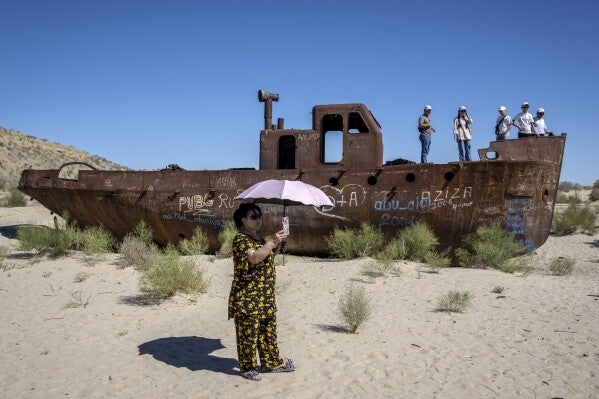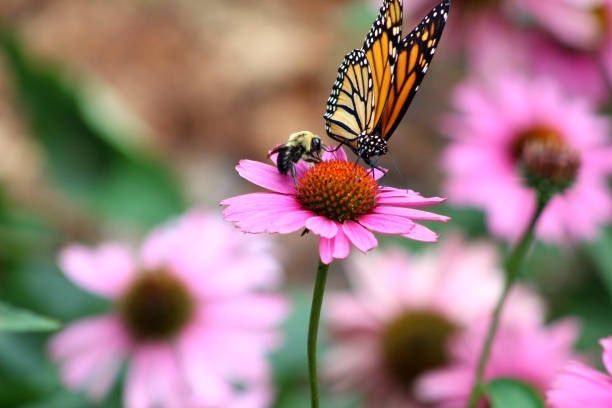The internet is flooded with claims that climate change caused by humans is causing a mass extinction of butterflies, honey bees and other pollinators and that could lead to a future “food apocalypse.”
One headline on CBS News blared: “Bumble bee babies dying in their nest due to climate change.”
Others, such as investigative reporter John Stossel, insist that climate change and the whole extinction talk is nonsense and not backed by reliable science.
MORE: Augusta University announces finalist for presidency
So, which is it?
UGA Extension Agent Campbell Vaughn says that the issue has become such a political hot potato that it is hard to tell where the truth lies, but he avers that a food apocalypse due to pollinator loss is not on the horizon.
Not all plants that humans consume are pollinated by creatures, some are pollinated by the wind.
“There is not enough quantitative data and the data that is there can be skewed, but we raise far more than enough food for everyone on the planet. The reason people are starving throughout the world and may starve in the future is because of politics,” Vaughn said.

It is true that, according to Vaughn, some pollinator species can’t handle even a minor rise in temperatures; however, other species, such as honey bees are highly resilient.
“They import honey bees from the East to the Midwest to pollinate pawpaw trees, and no one really even eats pawpaw fruit anymore,” Vaughn said.
According to Riverbanks Zoo and Gardens, one reason people see fewer pollinators is because modern landscapers eschew plants that attract bees, butterflies and hummingbirds, instead planting shrubs and turf grass that create a “wasteland” for pollinators.
Naturally, people’s yards would be abuzz if they planted lavender, sunflowers and beebalms.
Vaughn says that if anything could cause an “apocalypse,” it would be a mass water shortage.
“I took a trip to Lake Mead recently and I really couldn’t believe my eyes. The lake is down 150 feet, that’s taller than the tallest vertically standing pine tree. They will likely never get that lake to full pool again,” Vaughn said.
Vaughn reminds that all life on Earth, from pollinators to people, need water to survive.
While human created climate change research has produced foggy data and results, water shortages are definitely caused mostly by humans redirecting and damming rivers.

In the 1920s, the Soviets began redirecting rivers in the Aral region and by the end of the century, the Aral sea ceased to exist and a desert now sits in its place.
“China is building massive hydroelectric dams without a thought about the consequences,” Vaughn said.
It has been reported by multiple news agencies that China’s water mismanagement caused the aquifer supplying water to the country’s largest natural waterfall to dry up. The clever communists have imported water and installed pipes to keep the tourist attraction open, but no one has been fooled as a pipe is clearly visible at the top of the waterfall.
Scott Hudson is the Senior Investigative Reporter and Editorial Page Editor for The Augusta Press. Reach him at scott@theaugustapress.com











